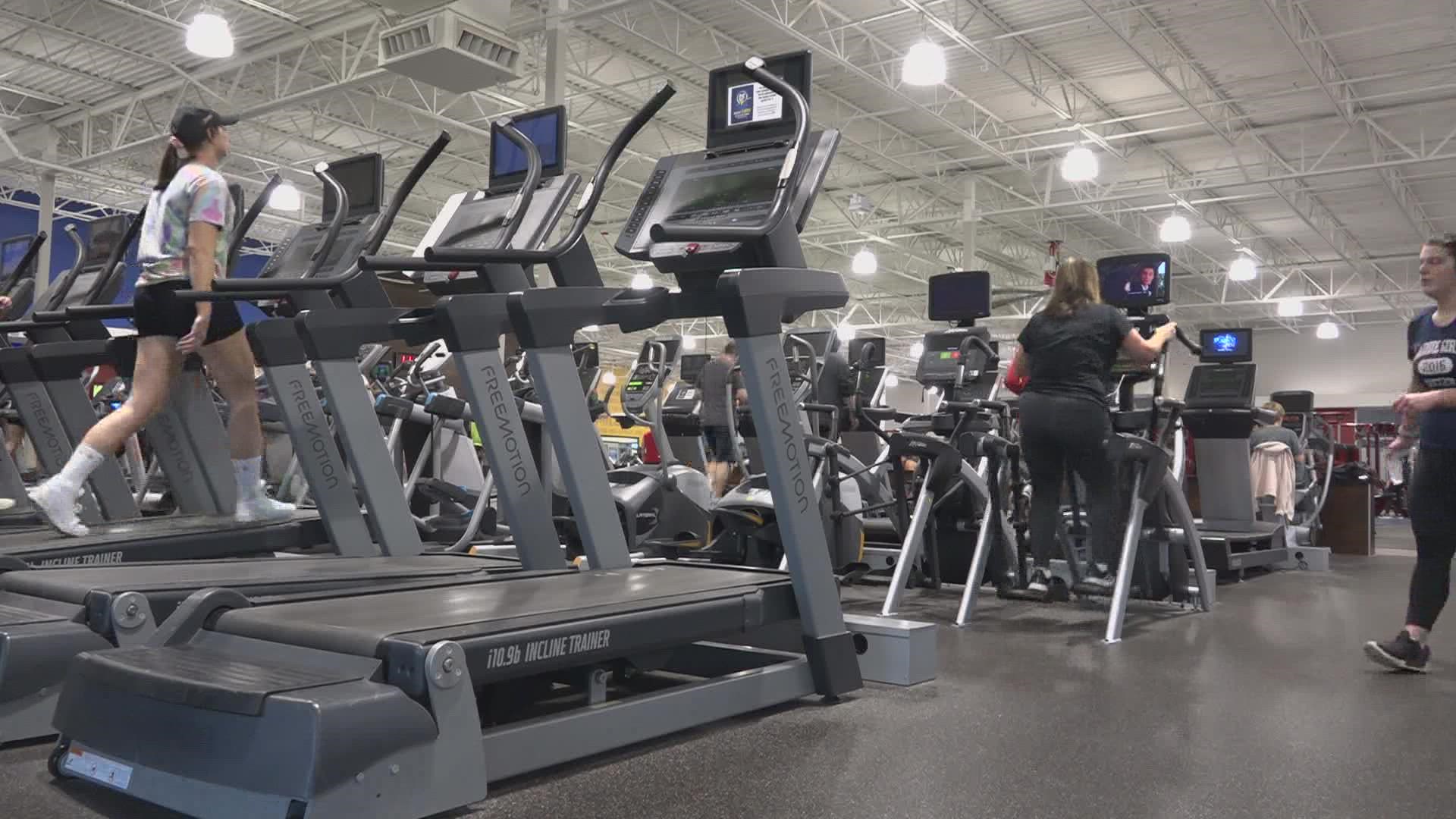ST. LOUIS — Many hit the ground running Monday morning, moving toward new goals for 2023.
But according to a new Forbes health survey, improving health and wellness goes well beyond the treadmill.
Dr. Bart Andrews with Behavioral Health Response wasn't surprised to hear 'improvements to mental health' was at the top of the resolution list, especially among younger generations.
According to the survey of 1,005 U.S. adults conducted in November, the survey found that 45% of respondents noted an improvement in mental health as one of their top New Year’s resolutions.
Improving fitness came in second at 39%.
Dr. Andrews said, "We're seeing a tremendous spike in depression and anxiety among younger folks. Generation Z and millennials are much more open to talking about emotional challenges, much more engaged to seek counseling services."
He says movement itself can enhance mental wellness.
When setting goals, he says to take it one step at a time and be specific about the changes.
"I want to work out more, I want to be more engaged, I want to be less anxious - these are goals that are more achievable than generally, I want to be a happier better person," he pointed out.
He recommended making small reasonable goals, rather big ones.
Dr. Andrews said that will make a difference when it comes to changing behaviors.
If you make progress, give yourself grace and applaud the work you've done.
If you're feeling discouraged, try to work through it.
"If you are feeling anxious and want to avoid something, don’t avoid that thing. Do the opposite of what you feel like doing in the moment. We want to stay comfortable and staying comfortable and safe all the time means our world gets smaller and smaller. Where is safe? At home in front of our favorite show or video games or online. Everybody wants to be comfortable all the time, well life isn't comfortable. Getting better isn't comfortable. If you want to get stronger, you have to do certain things to get stronger and healthier," he said.
Dr. Andrews believes leaning into the feeling can also help.
He noted, "There's a lot of research that shows being more connected with your body and emotions helps you manage them better. Some folks stuff their emotions or emotional experiences. Instead, we should encourage to lean in those emotional experience and even to journal."
He also suggests tracking the stressors and the positives in your life.
"Track and trend when am I feeling bad and when I am feeling better, what are things that are bringing joy and pleasure in my life and things that don't. So, we have more control on our behavior than we realize and what changes can you make to improve those situations," he added.
Dr. Andrews suggested also looking at two websites:
- Mental Health Association of America to learn about wellness
- 7 Cups for a peer support network
Dr. Andrews says if you are feeling like you need help or support, you can call or text 988.
It's the new suicide prevention lifeline that's available 24/7 with a trained therapist ready to offer resources.

